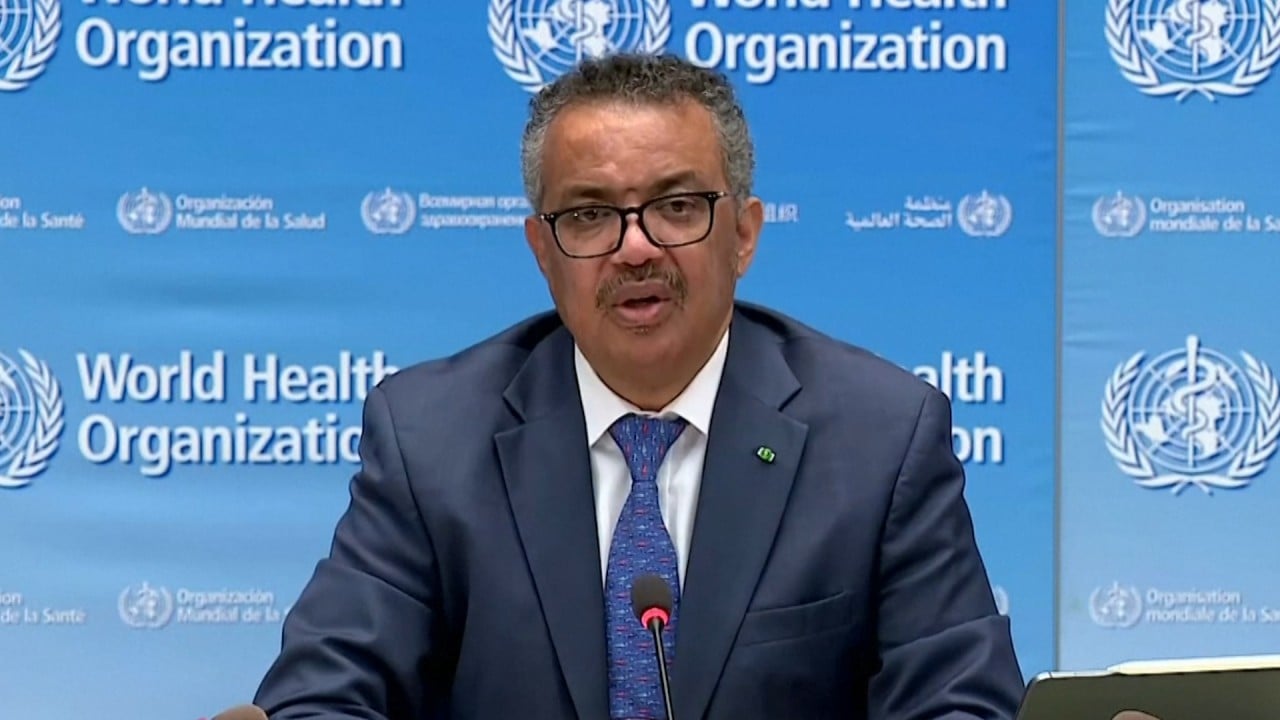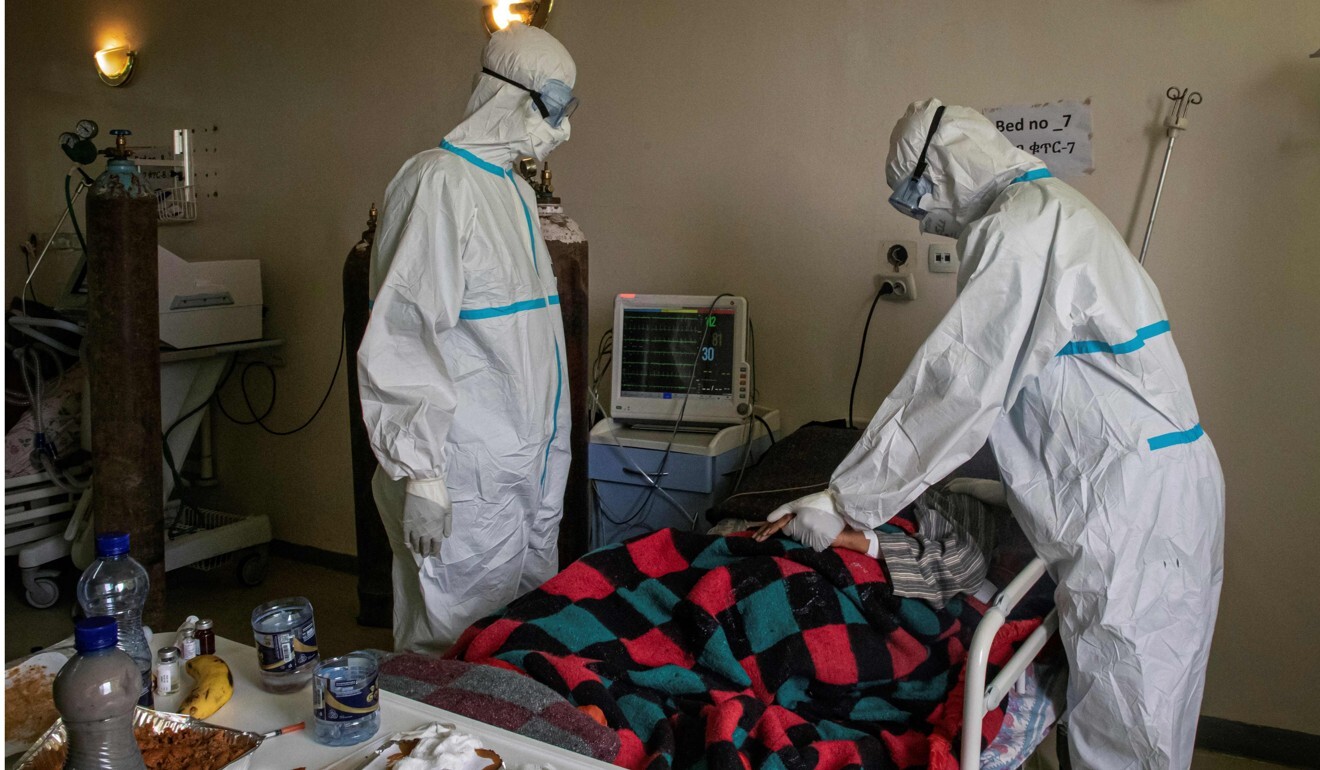
00:46
There may never be a 'silver bullet' for coronavirus, WHO chief says
Coronavirus: WHO warns of long road ahead, may never be a ‘silver bullet’
- The World Health Organisation said for now, stopping Covid-19 outbreaks comes down to basics like face masks, social distancing and testing
- An advance WHO investigation team has visited China to look into the origins of the virus – a demand of the US, which is leaving the world health body
More than 18 million people around the world are reported to have been infected with the disease and 689,000 have died, with some nations that thought they were over the worst experiencing a resurgence.
WHO director general Tedros Adhanom Ghebreyesus and WHO emergencies head Mike Ryan exhorted nations to rigorously enforce health measures such as mask-wearing, social distancing, handwashing, contact tracing and testing.
“For now, stopping outbreaks comes down to the basics of public health and disease control. The message to people and governments is clear: ‘Do it all’,” Tedros told a virtual news briefing from the UN body’s headquarters in Geneva.
Tedros said face masks should become a symbol of solidarity around the world.
“A number of vaccines are now in phase three clinical trials and we all hope to have a number of effective vaccines that can help prevent people from infection. However, there’s no silver bullet at the moment – and there might never be.”
But he underscored uncertainties. “There are concerns that we may not have a vaccine that may work, or its protection could be for just a few months, not more. But until we finish the clinical trials, we will not know.”

Ryan said countries with high transmission rates, including Brazil and India, needed to brace for a big battle.
“The way out is long and requires a sustained commitment,” he said, calling for a “reset” of approach in some places.
“Some countries are really going to have to take a step back now and really take a look at how they are addressing the pandemic within their national borders,” he added.
World Health Organisation warns coronavirus pandemic will be ‘lengthy’
Asked about the US outbreak, which White House coronavirus experts say is entering a “new phase”, he said officials seemed to have set out the “right path” and it was not the WHO’s job to do so.
The US, a top WHO donor, plans to leave the body next year, accusing it of being too acquiescent to China.
One of its demands is a study on the origins of the virus.

The WHO began pressing China in early May to invite in its experts to help investigate the animal origins of Covid-19.
“The WHO advance team that travelled to China has now concluded their mission to lay the groundwork for further joint efforts to identify the virus origins,” he said. They have not yet returned to the Geneva headquarters for a debriefing.
WHO lays groundwork for investigation into animal source of coronavirus
“WHO and Chinese experts have drafted the terms of reference for the studies and programme of work for an international team, led by WHO. The international team will include leading scientists and researchers from China and around the world,” Tedros said.
“Epidemiological studies will begin in Wuhan to identify the potential source of infection of the early cases. Evidence and hypotheses generated through this work will lay the ground for further, longer-term studies.”
Scientists believe the killer virus jumped from animals to humans, possibly from a market in the city of Wuhan selling exotic animals for meat.
Chinese officials said early in the outbreak that the virus may have spread from a market in the city, which sold live and wild animals, but no further confirmation of that has been revealed.

.png?itok=arIb17P0)
